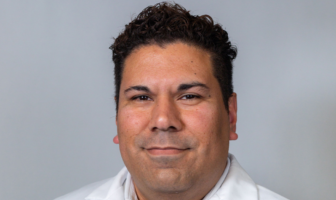Dr. Esther Yaniv shares everything you need to know about spine health.
Sponsored Content
Dr. Esther Yaniv is a board-certified physiatrist and pain-management specialist. After completing her Bachelor of Science degree at the University of Michigan in Ann Arbor, Mich., she went on to complete her medical doctorate degree at Tel Aviv University and her residency at Emory University in Atlanta. She continued to advance her skills in Charlotte, N.C., where she completed a fellowship in interventional spine medicine. After practicing medicine in Austin for 14 years and completing her yoga certification, she decided to start her own practice, incorporating an integrative approach to treating pain, including applying her knowledge as a certified yoga instructor.

What is a spine physiatrist?
After obtaining a medical doctorate, spine physiatrists complete a four-year residency in physical medicine and rehabilitation. In choosing to focus on the spine, Dr. Esther Yaniv has additional knowledge and training to evaluate and treat spine-related pain. While a spine surgeon may offer surgery to address back and neck pain, spine physiatrists help manage pain through nonsurgical (“conservative”) options such as physical therapy and spinal injections. The majority of pain related to the spine is not ame- nable to surgery. Many of us live with pain that reduces quality of life. Additionally, spine physiatrists are able to counsel and educate their patients, and in doing so, assist them in living and functioning optimally.
When should I see a spine physiatrist?
There really is no wrong time to see one. Back pain affects more than 80 percent of people at one time or another. If you have neck or back pain and think you have to just live with it or have been told pain is just a part of getting old, consult with a spine physiatrist. Sciatica, or pain down the leg, is also a common presentation and should be evaluated. Oftentimes, patients come in when they’re not in pain to establish a relationship so episodes can be addressed efficiently and quickly. Think of us as the primary-care specialists of the spine. You don’t go to a heart surgeon if you have chest pain. You go to a cardiologist first to get evaluated and treated without surgery, if possible. If that doesn’t work, then you go to the surgeon.
What should I expect during a consultation?
For the initial visit, Yaniv meets with patients for a one-hour consultation. Pain is complex and, therefore, it is nearly impossible to assess, evaluate and diagnose in a typical 15-minute visit. Not only is pain a physical experience, but it is also very much an emotional experience. To expect good results by simply providing a pill and a pat on the back is unrealistic. Yaniv previously experienced the frustration of not having sufficient time to feel like she was really helping her patients. That is why she is committed to fostering a team approach, spending more time reassuring, educating and coaching her patients. A thorough physical examination and review of imaging studies round out this comprehensive visit.
What sets Austin Spine Health apart?
Pain is becoming one of the most disabling and troubling health-care problems in America. And the typical protocol of pain medications, avoiding activity, excessive procedures and surgery is not solving the issue. The field of pain medicine is evolving, and at Austin Spine Health, Yaniv is leading the way. She offers physician-guided yoga, as well as tips for stretching, nutrition and stress management. She is committed to optimizing the patient experience and envisions a collaboration between the medical and wellness aspects of spine health.
For more information, visit austinspinehealth.com.



